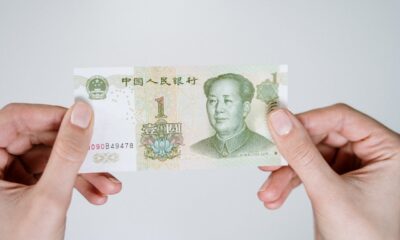Business
4 tips on how to buy from China and make profits online
Products from China can prove to be profitable. Here are four strategies that can help you source products from China and earn money online.

China may seem a difficult market to operate in especially for small businesses, but the rise in the wealth in the country provides an interesting opportunity for small and large businesses.
China’s GDP growth has cooled down a bit after a long history of delivering high growth rates. Still, China presents a great opportunity to find new business partners and a market for every size of a business.
China can also be a great source of a large variety of products for sale in your local country. Importing from China and selling them on eBay or Amazon can be a profitable business.
Given the set of opportunities available, here are some tips for trading in China:
Research your product ideas
Chinese products can be cheap to import. It can be a temptation for small business owners to compromise on quality to save money by buying cheap products from China.
To avoid falling into this trap and to provide your customers quality products, you should always research your product ideas.
Not all products can be sourced from China as following factors may affect their marketability:
- Products with strong brand loyalty. Products such as toothbrushes can be cheap to source from China, but such products also carry strong brand loyalty and image. Avoid importing such products or you can risk losing money.
- Do not buy heavy and big size products. If you are an eBay or Amazon seller, avoid sourcing heavy or huge items that are difficult to ship for a small business. Items like furniture, large electronic items can be expensive to return to the suppliers in case of faults. Returns can easily eat away your margins so better avoid such products.
Additionally, source only those products from China which are not easily available in local markets and/or have no brand loyalty and following locally.
Build local relationships
Whether you are a small eBay seller drop shipping from China or a large importer, building local relationships with the suppliers, buyers and sourcing agents is one of the preliminary requirements to successfully trade through the country.
Do your market research, check out who your customers could be, how you can reach them and what role your local contacts can play to help you expand in this country. You need to find out the local suppliers who can offer you great products at the price where margins are sufficient enough to justify sourcing from China.

Find out more about your product. In the process of doing so, check out local suppliers that might help you out too. (Source)
Always arrange translation services
Though China is modernizing, English is not widely understood and used in business transactions. You need to hire the services of a translator or learn the Chinese language to trade effectively there.
There are several free courses on YouTube and Coursera teaching basic Chinese language. If you have time to learn, go for them. Otherwise, always arrange the translation services so you can get the most out of your trade negotiations.
Use Alibaba and Aliexpress
Two of the biggest wholesale and retail sites in China are Alibaba and Aliexpress. Both sites are controlled by the same company but offer a large variety of suppliers with free and paid shipping in almost any part of the country.
These suppliers can easily ship products on your behalf so you do not even have to keep inventory on hand.
Be aware of the returns and the taxes charged to your customers. Sometimes products shipped from mainland China and even Hong Kong are considered as imports so it adds to the costs.
There are countless sellers on eBay, Amazon and Etsy who are using Chinese suppliers to make a lot of legitimate profits online. By sourcing from Chinese suppliers, you can get cheap products with high margins.
—
DISCLAIMER: This article expresses my own ideas and opinions. Any information I have shared are from sources that I believe to be reliable and accurate. I did not receive any financial compensation in writing this post, nor do I own any shares in any company I’ve mentioned. I encourage any reader to do their own diligent research first before making any investment decisions.

-

 Biotech2 weeks ago
Biotech2 weeks agoPfizer Spain Highlights Innovation and Impact in 2024 Report Amid Key Anniversaries
-

 Business1 day ago
Business1 day agoLegal Process for Dividing Real Estate Inheritance
-

 Markets1 week ago
Markets1 week agoStock Markets Surge Amid Global Uncertainty, But Storm Clouds Loom
-

 Africa6 days ago
Africa6 days agoMorocco Charts a Citizen-Centered Path for Ethical and Inclusive AI























You must be logged in to post a comment Login